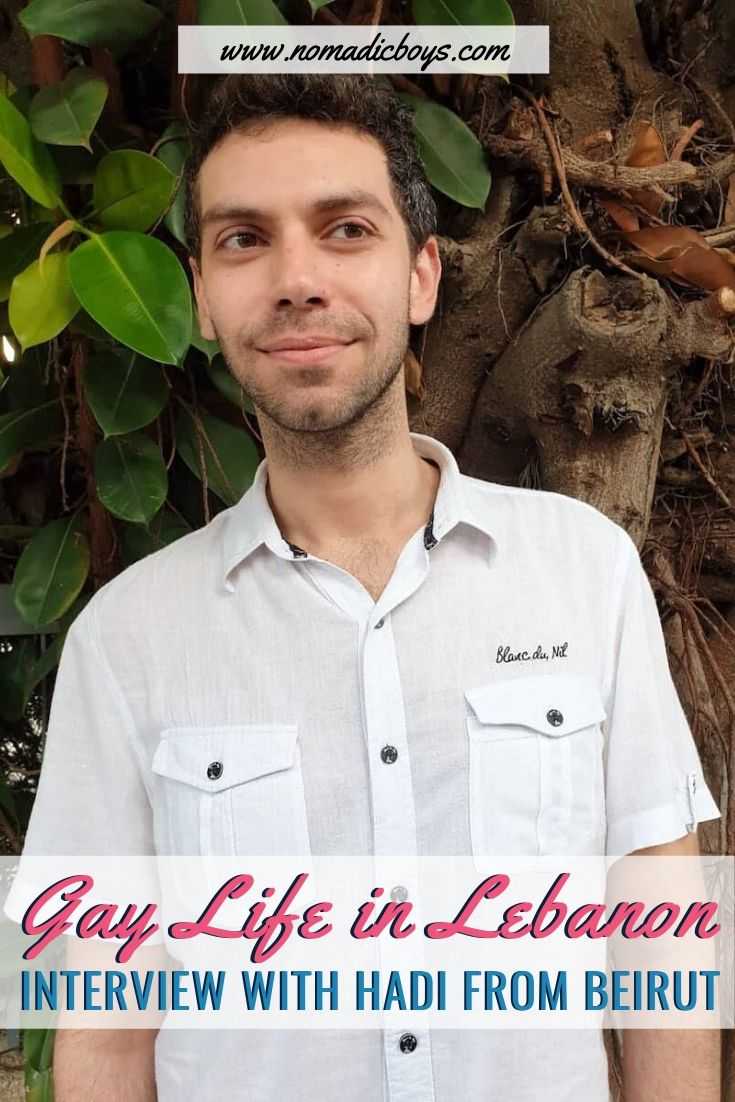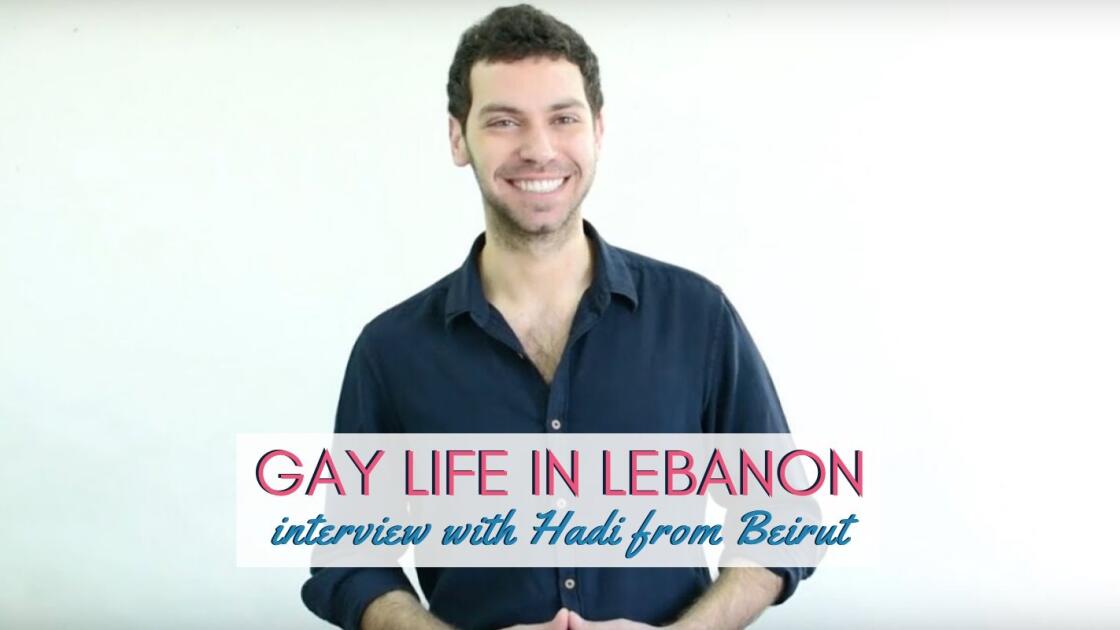TERMS OF USE: There is a chance that some of the content on this page has changed since it was last updated. By reading this article, you consent to our Terms of Use and Disclaimer. Happy Travels!
DISCLOSURE: Some of our posts may contain affiliate links which we may receive a commission if you choose to book something through one of our links.
We interviewed Hadi from Beirut about gay life in Lebanon and his experience being arrested for trying to run Beirut Pride.
When it comes to LGBTQ rights, Lebanon is a bit of a blur. On the one hand, it's renowned for being one of the most gay friendly Arab countries, but on the other, life is still a challenge for the local LGBTQ community.
Lebanon has a fantastic gay scene (by Arab country standards!), it has the largest gay club of the Arab world (called POSH), it's the only Arab country that has a Pride event, and has a growing number of politicians that publicly campaign for the decriminalisation of homosexuality.
But, this is still a place where conservative homophobic religious voices retain a strong influence in politics as can be seen by the way they try to repress Beirut Pride each year.
We were fortunate to meet the founder of Beirut Pride, Hadi Damien. In 2018, Hadi was arrested and only released on condition that he cancels the remainder of that year's Beirut Pride. A year later, the 2019 Beirut Pride formally went ahead, but the organisers were, again, forced to cancel the opening event due to the same religious pressure. In this interview, Hadi tells us more about his experience as an LGBTIQ+ activist in Lebanon, his experience being arrested, and what life is like for the local LGBTIQ+ community.
Don't forget…
Gay dating apps such as Scruff and Grindr are blocked on mobile networks in Lebanon. Before you travel there, make sure you get a VPN so you can secure your internet connection wherever you are, keep your online activities private and surf the Net anonymously.
Hi Hadi, please introduce yourself:
Hi Stefan and Sebastien. My name is Hadi Damien. I am 34 years old, born and raised in Beirut.
I am a theatre maker, I design and execute events, curate exhibitions, practice political communication, and also contribute to the decriminalization of homosexuality in Lebanon. I am also a postgraduate university lecturer.
…and of course, I am openly gay!
DON'T MISS OUT!
Join our newsletter
Subscribe now to receive our latest interviews with gay locals, in-depth gay travel guides, inspiring stories, savvy planning tips, and exclusive discounts on gay tours.
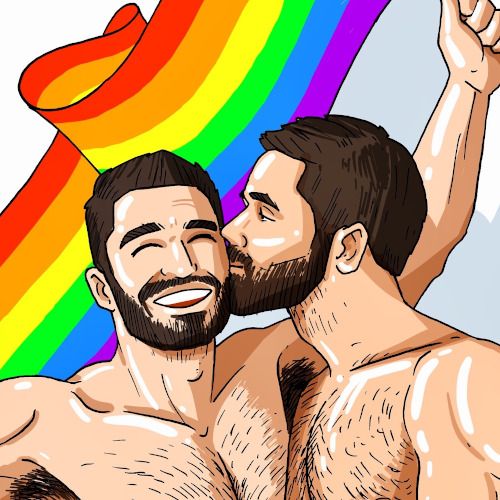
What was it like growing up gay in Lebanon?
I grew up in a family that was not obsessed with gender roles and stereotypes. There were, admittedly, the occasional “you’re a boy, don’t act like a girl” comments which destabilised me and contributed to my self-consciousness. I monitored my gestures, my tone of voice, and later on my glances.
Gay or not, I’d probably have gone to the same school, but my experience with homophobia would have been different:
- I wouldn’t have felt personally concerned with generic homophobic comments
- I would have been able to talk about my fantasies with my peers instead of faking interest in theirs (which back then they blamed on my shyness)
- I would have identified with role models in movies and on TV series to look up to
- I wouldn’t have felt different from my classmates, falsely believing no one was like me
- I wouldn’t have feared mockery, rejection, abandonment and violence if people knew who I was daydreaming of
- I wouldn’t have thought so little of myself
- I wouldn’t have undergone such stress, carried much anxiety, and overworked myself to please, to feel worthy of attention — for validation.
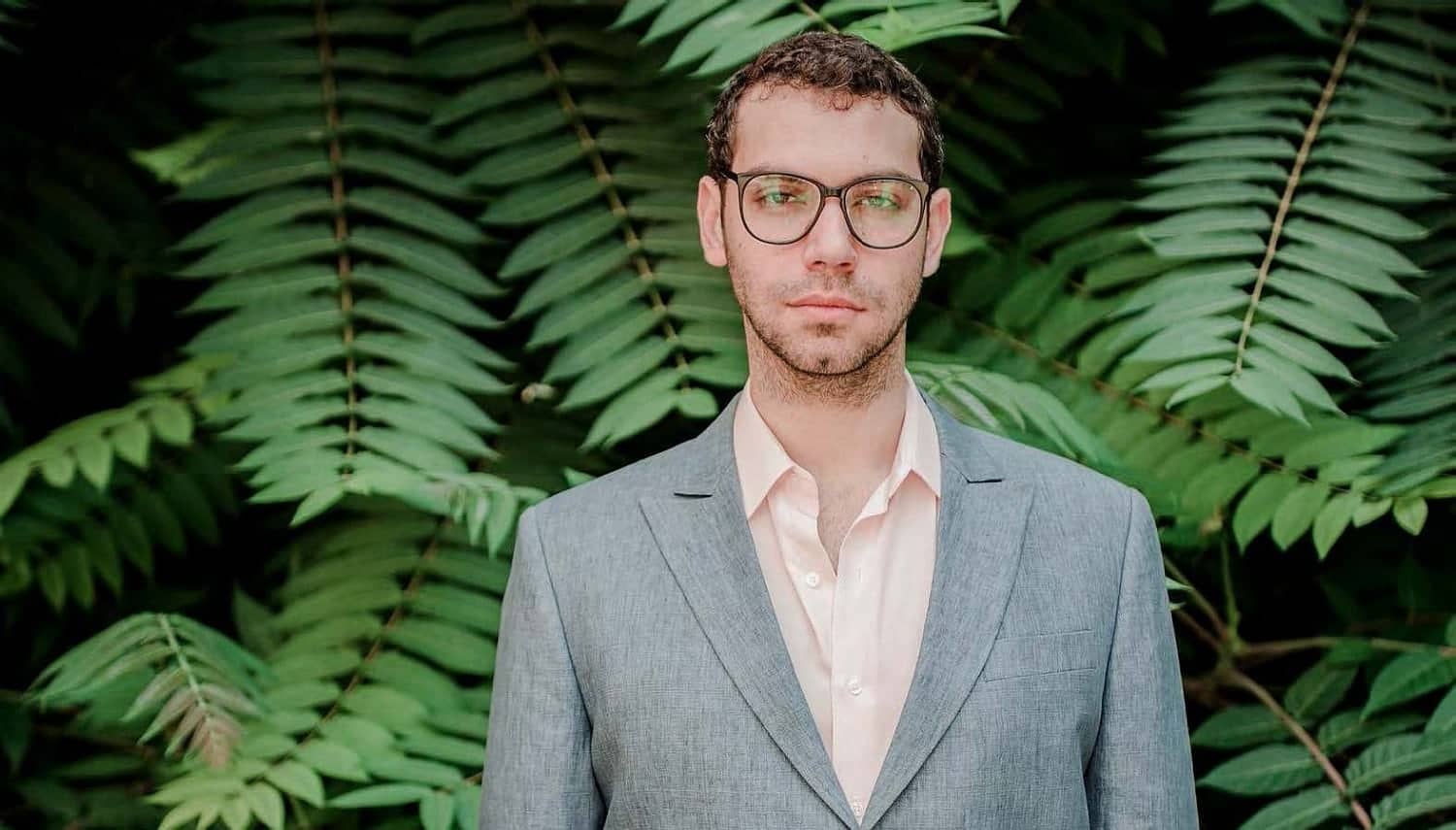
Source: from the photoshoot collection of designer Lara Khoury. Photography Myriam Boulos
Did you ever experience or witness any homophobia growing up?
Homophobia is all around us. I have always witnessed it and have also been at its receiving end. For example, at school, classmates would call me girly names to highlight what’s deemed a lack of masculinity and would publicly spank my ass! They would also call some of my lesbian friends “butch” which was horrible to witness. There were also times when I felt ostracised, for example, not being included in school activities, being chosen last for sports teams, verbally and physically picking on me, slurs, locker room-type comments, remarks, snickers, slogans, jokes, texts, images…all met with total silence from our teachers – this was the worst part!
What was coming out like?
I came out at 19 to my mother, a few weeks later to my sister, and years later to my father. It was a solemn conversation with my mother, an emotional exchange with my sister and a blunt response to my father. Ten years passed between me coming out to my mother and subsequently to my father.
My mother surprised me with my ex when I was 19. A few minutes later, I opened up the conversation with her. She thought it was a phase until I argued with her many times and she eventually came to terms with it. A few weeks later, my 15-year-old sister was upset nobody explained to her why that friend was not coming over to visit anymore. She didn’t understand why a friend would offer me a pillow and a plant for Valentine's Day. Rejecting my mother’s answers, she acted up around me one day over breakfast. Annoyed with her pressure, I fired back:
“Fine, since you wanna know everything: he’s my ex, we were together and not anymore!”
A few seconds later she knocked at my room saying I was her brother, that she loved me no matter what and gave me one of the most important hugs of my life!
Years later, and marked with a public active commitment to the LGBTIQ+ community in Lebanon, my coming out to my father was a simple “But pap, I am gay!” response to a worried comment he made about my involvement with Beirut Pride.
What’s your advice to young LGBTIQ+ Lebanese who are still in the closet and don’t know it’s safe for them to come out?
Coming out is a personal and intimate process. Every single coming out experience is different and unique. It is the sum of questioning, discovering, responding to homophobic attitudes, asserting yourself, considering the person you are coming out to, assessing power balance and effects, and riding the rollercoaster of emotions that accompanies these elements.
That being said, coming out is not an experience all LGBTIQ+ people must walk through in their existence. You’re free to be 55, to run a lesbian establishment, to surround yourself with lesbian people, and yet to never speak about your sexuality, your body, your partners. It is different for everyone.
Have you seen any positive change since your childhood?
Definitely: the fact that our LGBTIQ+ community managed to host (part of) Beirut Pride shows how far we've come! Initiatives such as Beirut Pride act like a catalyst to move things forward without a boomerang effect. We stand on the shoulders of giants, we are the heirs of centuries of resistance, and it’s time we recognise the legacy for the best of our advancement.
Every initiative we make is important, even if it felt insignificantly small, like a droplet in the ocean. But this droplet, its impact, its ripple effect, the way it is charged and what it produces would be missed if it never existed in the first place.
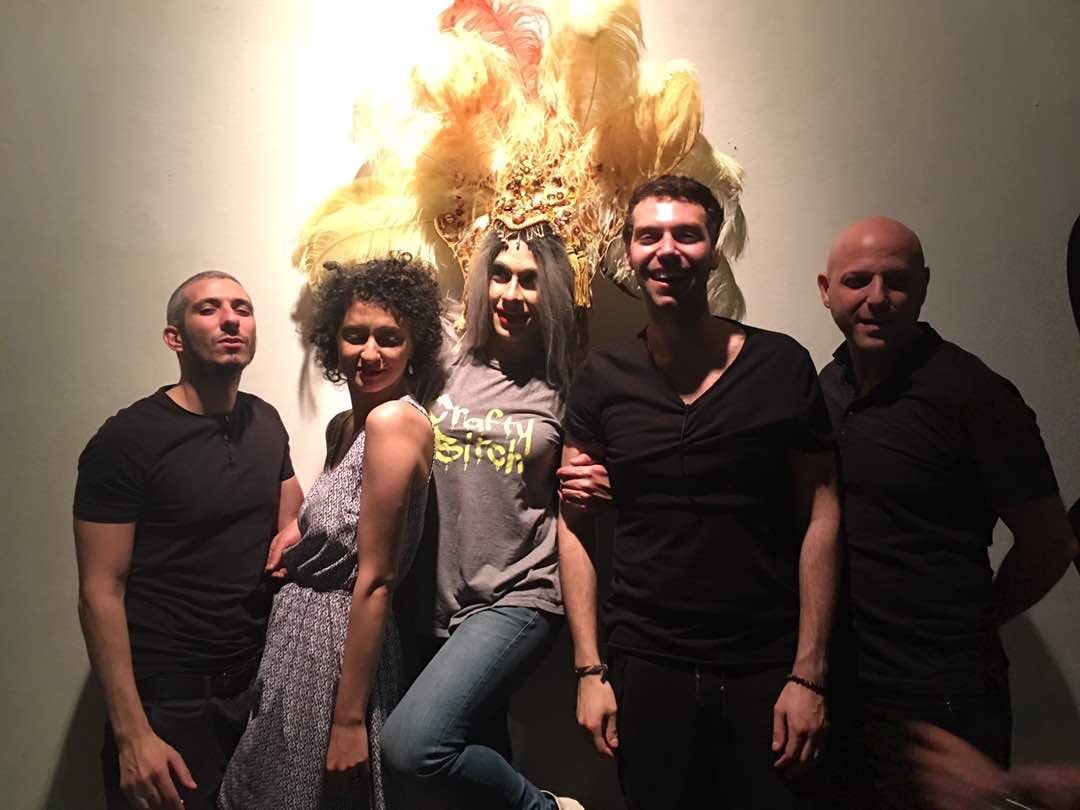
What inspired you to become an LGBTQ activist?
I’m a maker, I get things done, I make a decision and act on it. I don’t stay still when things plateau or reach a dead end. I believe it is crucial that action is taken to move forward in an efficient and robust way. This is what motivated me to get involved with Beirut Pride. I believe that only a multisectoral approach can address the manifold aspects of our LGBTIQ+ community because it engages a multiplicity of partners in action and impact.
For me, Pride is important because it is a performance of visibility – and it is through visibility that we deconstruct the myths, lies, and prejudices that surround our lives.
I am extremely proud to be contributing to decriminalizing homosexuality in Lebanon and to bettering our daily lives.
DON'T MISS OUT!
Join our newsletter
Subscribe now to receive our latest interviews with gay locals, in-depth gay travel guides, inspiring stories, savvy planning tips, and exclusive discounts on gay tours.

What's it like organising Beirut Pride and having to deal with all the governmental opposition to it?
Since its first instalment, Beirut Pride has been a tremendous success: it’s a collaborative platform that taps into the creative industries across three languages: Arabic, English and French. However, it has been an uphill challenge to say the least: attacks on our LGBTIQ+ community are numerous.
A manifold of attacks have been targeting Beirut Pride since 2017, the most famous one being the 2018 police crackdown, my arrest and the suspension of the scheduled activities. In 2019, the venue that was hosting the opening concert received a series of attacks, messages and calls that forced its administration to cancel the opening concert they were producing.
The reason for all the setbacks we've faced is because our national climate has been challenging, unstable, marked with abuse of power, rampant corruption and an economic crisis. Yet, these attacks will not deter us. In order to get contributions for the upcoming editions, we’ve launched the open call for the next Beirut Pride, inviting volunteers, contributors and participants to engage, to commit and to work for the realisation of Beirut Pride and of its endorsed objectives.
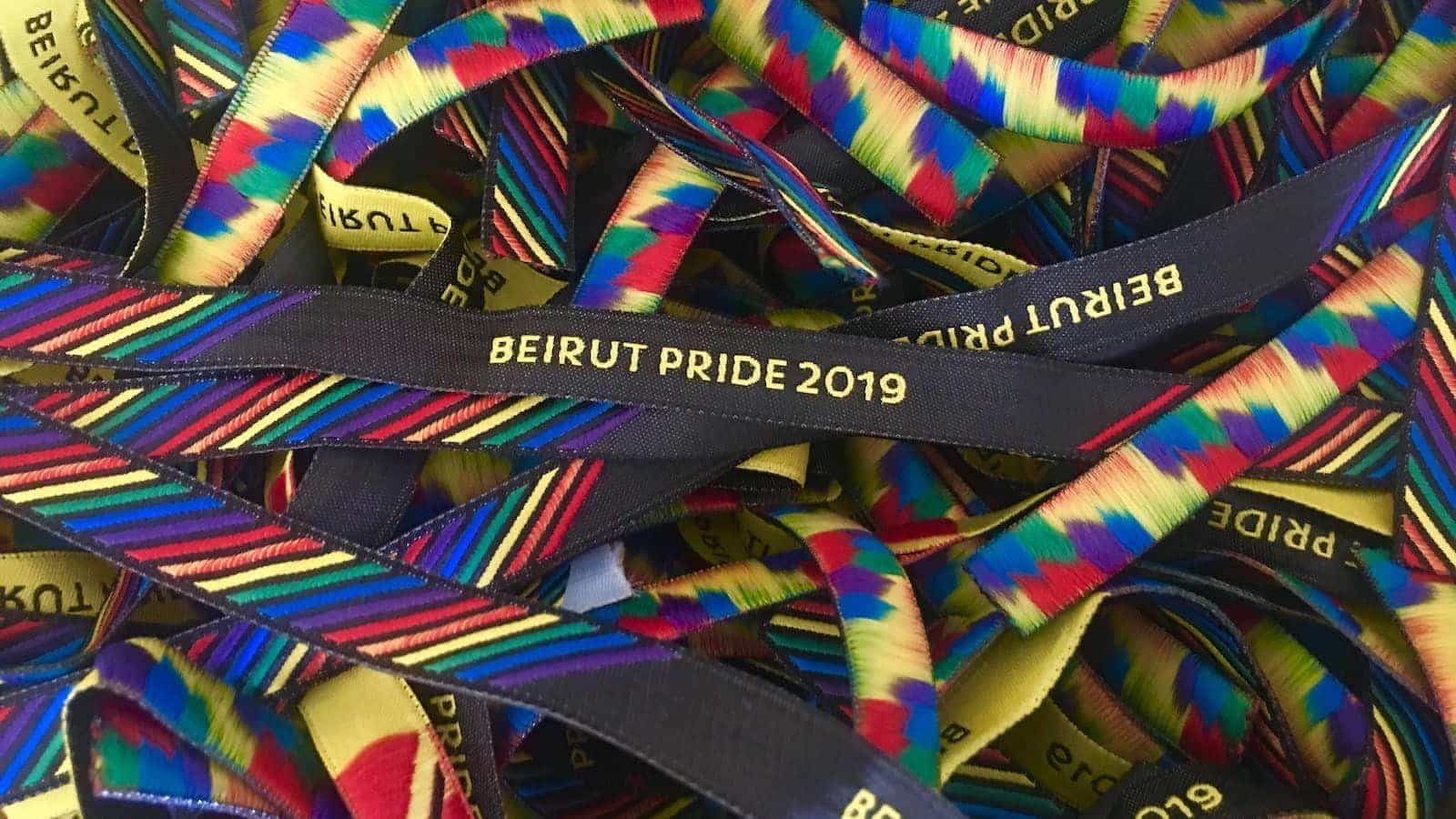
What was it like being arrested and detained?!
Whilst it was an awful experience, ironically the security services found themselves participating in Beirut Pride when they raided the venue! Their actions contributed to the expansion of the communication of Beirut Pride, its outreach and therefore our visibility.
It all began on the third evening of Beirut Pride 2018, when the police raided a theatre venue that was hosting the reading of a play in Arabic, followed by a talk and a party. The reading was halted and the vice squad police arrested me in my capacity as the organiser of Beirut Pride.
After a night spent in detention, I discovered the next day during my interrogation, that homophobic persons used the Beirut Pride programme to create a new one instilled with words such as “pervert”, “sodomites”, “strip-tease” in order to associate Beirut Pride with outlawed practices in Lebanon. They then distributed this document to several security officers via WhatsApp. A mere comparison with the published programme of Beirut Pride was enough to uncover the fraudulent nature of this document. However, the prosecutor of Beirut (a judge) ordered the suspension of all the mentioned activities (in order to calm the homophobic ardours, as I was told).
After being released from police custody, the prosecutor charged me for organising events that incite debauchery. The case remains ongoing and no hearing has yet taken place. Following my arrest, the police raided several venues expected to host Beirut Pride activities and took some patrons to the police station for questioning in a pressuring attempt to ensure the events would not continue.
Obviously I wasn’t amused by the whole experience! I wasn’t amused as a Beirut Pride organiser who worked a long time on the event. I thought about the disappointment of the youngest ones. I thought about how to remain composed if faced with interrogation or violence. And above all else, I thought about what I was making my family and loved ones go through in my pursuit of the goals of Beirut Pride.
Are there any politicians who openly support LGBTIQ+ rights in Lebanon?
There are 4 members of parliament that have publicly committed themselves to the decriminalisation of homosexuality:
- Paula Yacoubian: an independent politician
- Samy Gemayel: a member of the Kataeb party
- Nadim Gemayel: a member of the Kataeb party
- Elias Hankash: a member of the Kataeb party
These politicians have participated in several discussions about homosexuality, attended activities of Beirut Pride and spoken to the media about why decriminalisation is important and why they are committed to it.
There is a growing political will in favour of the decriminalisation of homosexuality in Lebanon. However, the timing of its public expression depends on the political background in the country, where local, regional and international dynamics interlace. There is also a lot of face-saving that the power structures have to do before their commitment becomes more public.
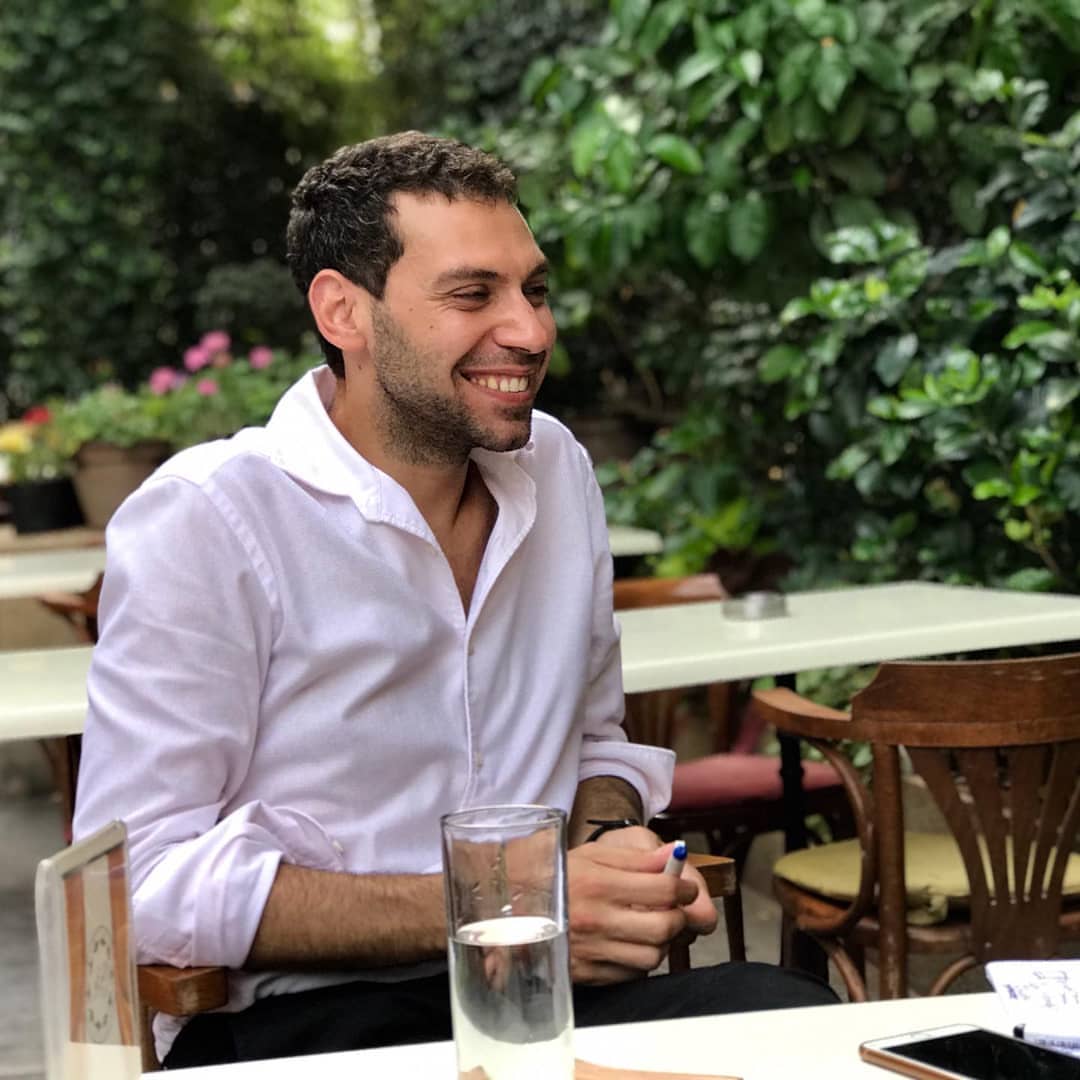
What are your hopes for the future of the LGBTIQ+ community of Lebanon?
Beirut Pride demonstrates the power one human being can have, and the impact each one of us can yield. Imagine the effect of bringing together this massive impact produced by individuals: we would move mountains!
The large street demonstrations that took place in Lebanon in late 2019 show the power of the people demanding rights by peaceful means. This mobilisation is based on the individual. There is no spokesperson, there is no public hierarchy. It is a democratisation of concerns. It’s a public, common, shared space we reclaim. LGBTIQ+ individuals are an integral part of this mobilisation: guys holding hands, tags on the walls, graffitis, social media posts, etc. all contribute to shaping a better world for everyone, to being in the visible space. All this indicates that improvement is inevitable with unity, strategy and nonviolence.
Are there any openly gay Lebanese celebrities?
There are quite a few! The most famous is pop singer Mika and of course, Hamed Sinno who is the gay singer of Mashrou' Leila – an indie rock band in Lebanon. Others include actor, Haaz Sleiman, hairstylist and fine art photographer Fadi Fawaz (who was also the late George Michael's boyfriend), drag queen Bassem Feghali, Baladi dancer Alexandre Paulikevitch and performer, Mohamed al-Khansa.
I would also like to acknowledge the everyday heroes, individuals we all know, who surround us. Those who often have these uncomfortable, difficult, emotional conversations with their loved ones, with their families and friends. Kitchen conversations after which they might lose support, their house, their friendships. They are the ones who move the bar and should also be recognised!
What do you think makes Lebanon one of the most gay-friendly Arab countries?
It is true Lebanon is more gay-friendly compared to its surroundings, but the comparison threshold is not very elevated: it is measured against countries that still execute people for being gay. But it is true that several places in the country are very friendly.
The geopolitical place of Lebanon has always played a crucial role in its openness to both Europe (and by extension to the West) and the other Arabic-speaking countries. It has favoured commercial, economical, cultural, religious and linguistic exchange. The religious mixing also contributes to softening impressions and encourages people to look over differences (a work that is continuously in progress).
Beirut is very cosmopolitan, it hosts a lot of visitors, for short and long term stays. In addition, many Lebanese people travel a great deal, which exposes them to other contexts. Traveling contributes to making a place LGBTIQ+ friendly, for it educates, offers new perspectives, and presents situations that touch the heart and the spirit. And this is where change truly begins to happen.
What are the best LGBTIQ+ hangouts in Beirut?
Based on your own experiences as gay travelers in Lebanon, I believe you boys would recommend Bardo, Madame Om, Tota, Posh, Projekt, Aaliya’s Books and Out Beauty.
I highly recommend connecting with a local who knows the country well to show you around.
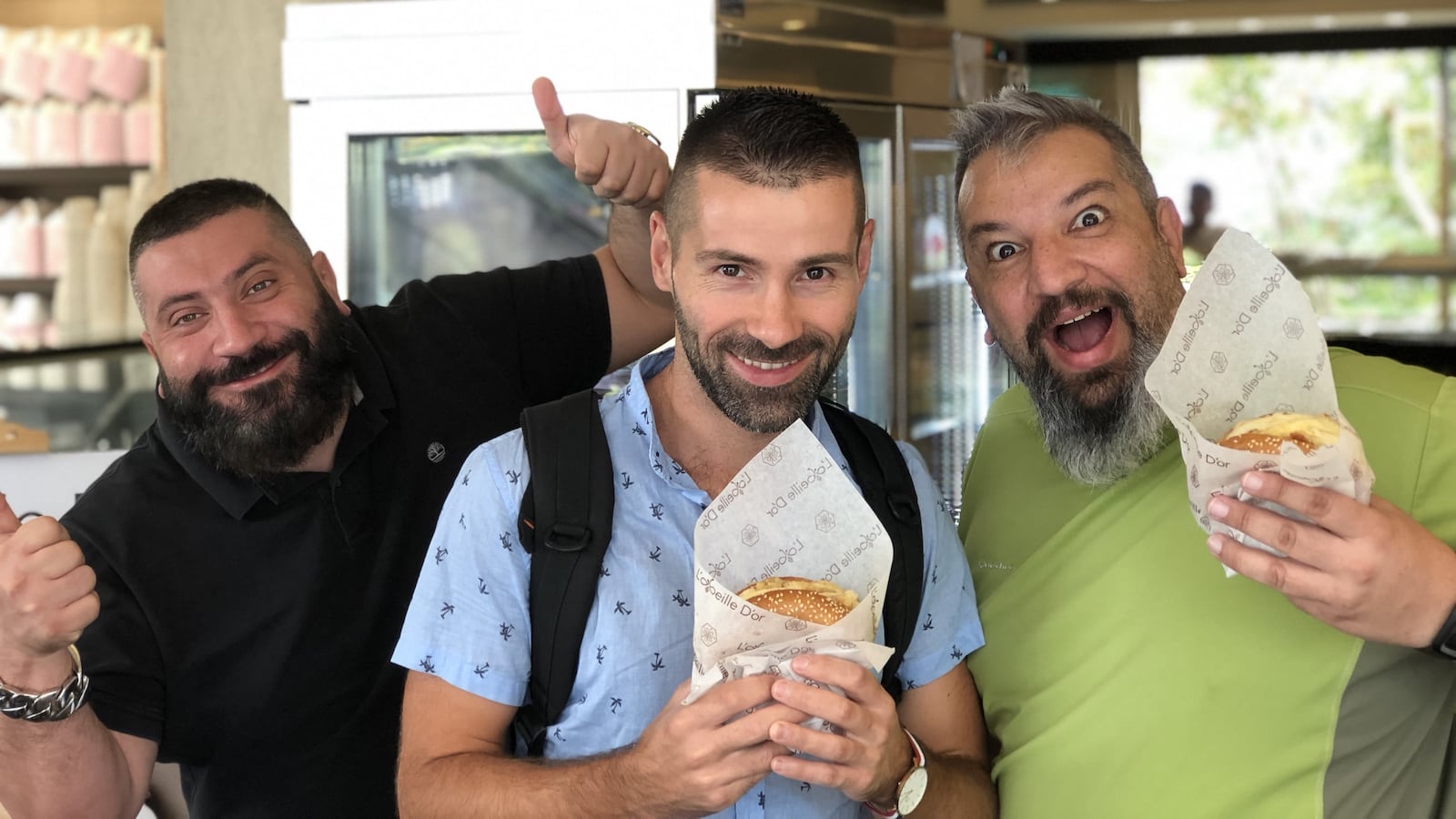
What's your advice to LGBTQ travelers visiting Lebanon?
Visit with Lebanon with an open mind. Free yourself from what you've heard, from what you saw and from what you've read. More specific advice from me:
- Visit the website of your country's Ministry of Foreign Affairs and check their latest recommendations for Lebanon: click here for the UK and click here for the USA.
- Apply for your tourist visa at your country's Lebanese Embassy before your visit. Whilst you can get a visa on arrival, there have been cases of people being turned away by the General Security at Beirut Airport.
- Read pieces about LGBTIQ+ life in Lebanon to understand local realities.
- Buy a SIM card with data and internet to stay connected.
- Observe, listen, be sensitive to your surroundings and enjoy them.
- Don’t hesitate to contact me or Beirut Pride if you need any assistance or advice. In case of medical need, check the catalog of LGBTIQ+ friendly medical doctors on the website of LebMASH.
I want to conclude this interview by stating that tourism, visiting places, especially where LGBTIQ+ realities are challenged, is a means to contribute to a better world of inclusion and global respect. Change happens in the hearts and spirits of people. And every single encounter has a ripple effect that can move mountains.
DON'T MISS OUT!
Join our newsletter
Subscribe now to receive in-depth FREE travel guides, along with inspiring stories, savvy planning tips, and exclusive discounts on gay tours.

For more inspiration:
- Read more in our detailed gay guide to Beirut
- More practical tips in our guide of how to get to Beirut from the airport
- Find out more about gay travel in Lebanon
- By comparison, read about gay travel in Iran
- And about the gayest cities in Europe
- Use our comprehensive gay guide to Dubai and gay Abu Dhabi to help plan your trip in the UAE
- Get inspired by these fabulous gay pride outfit ideas
- And make sure you pack these must-have gay pride accessories!
Like this post? Pin it
